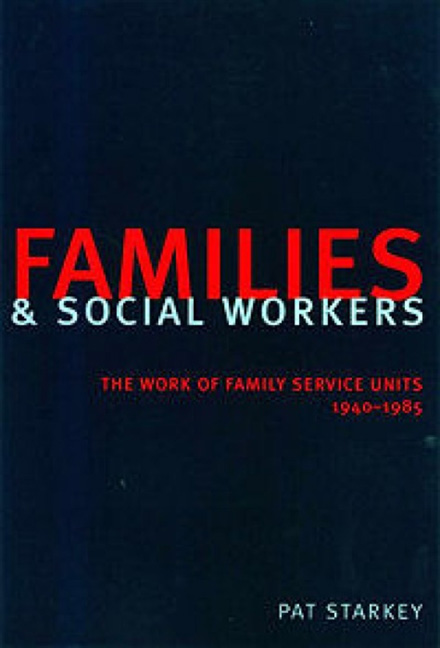Book contents
- Frontmatter
- Contents
- Acronyms and abbreviations
- Introduction
- 1 Pacifist Service
- 2 Problem Families, Eugenics and FSU
- 3 The Growth of a Social Work Agency
- 4 Changes and Adjustments
- 5 Training and Professional Development
- 6 Changing Relationships with the State
- 7 Almost Not An Organisation
- Conclusion
- Bibliography
- Index
1 - Pacifist Service
- Frontmatter
- Contents
- Acronyms and abbreviations
- Introduction
- 1 Pacifist Service
- 2 Problem Families, Eugenics and FSU
- 3 The Growth of a Social Work Agency
- 4 Changes and Adjustments
- 5 Training and Professional Development
- 6 Changing Relationships with the State
- 7 Almost Not An Organisation
- Conclusion
- Bibliography
- Index
Summary
The Liverpool and District Pacifist Service Unit was part of a loosely knit national network of pacifist groups based at Dick Sheppard House at 6 Endsleigh Street in London (in 1940 the recently purchased headquarters of the Peace Pledge Union), which at its first meeting in May 1940 had committed its members to ‘… train for relief and other social work and thereafter give their services for the benefit of the community at large’. It was a vague and open-ended commitment, but although the type and extent of their work had not been decided – and possibly could not have been decided during the first, uncertain months of the Second World War – the statement of intent carried the implicit ambition that service initiated during the war should continue when it was over, and was an important element in the whole notion of pacifist service exemplified by the establishment of Pacifist Service Units (PSU). As might be expected, in the early years of the war the emphasis was on emergency and first aid work, but some members nursed the vision of a network of voluntary, pacifist groups which would strive to improve society through activities motivated by human sympathy and the desire to serve others, and which would become a permanent feature of British life. In 1940, members of the Liverpool unit shared such dreams with their colleagues elsewhere, but could not have foreseen the impact that their work would have. They neither set out to work with those who came to be called problem families, nor to found a voluntary social work agency, but by the end of the war they had established themselves as social workers with skills that other agencies wished to emulate.
Many PSUs, including Liverpool, were composed of men and women already committed to other pacifist groups. Their existence reflected the rise in the number of new organisations, and the growth of previously established ones, that had been a feature of the inter-war period. As Martin Caedel has shown, the shock of the First World War and the horror which the destructive potential of the bomber plane had aroused in the minds of ordinary people contributed in no small measure to the birth of organisations dedicated to the pursuit of peace.
- Type
- Chapter
- Information
- Families and Social WorkersThe Work of Family Service Units 1940–1985, pp. 8 - 44Publisher: Liverpool University PressPrint publication year: 2000

